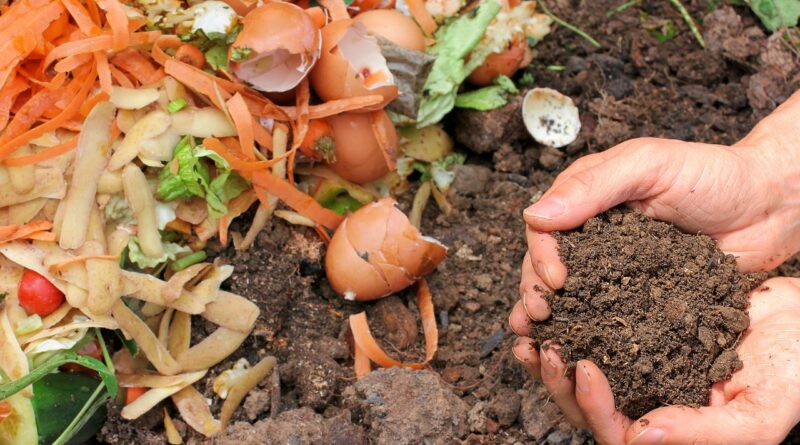Organic Fertilizers: Nourishment for Sustainable Gardening

Introduction:
Organic fertilizers and growing plants are important, but so is developing a healthy relationship with the environment when one chooses to garden sustainably. Among the many techniques that characterize environmentally responsible gardening, making homemade fertilizers is a skill that stands out as an affordable, natural solution for plant care. This tour delves further than ordinary gardening; it’s a life-changing investigation of “organic fertilizers: mastering homemade plant nourishment for sustainable garden success.
Definition:
“ORGANIC Fertilizers: Nourishment for Sustainable Gardening Success” summarizes the process of making natural plant fertilizers out of readily available, ORGANIC products. This method places a higher priority on sustainability and offers a natural fertilizer substitute as well as a stronger bond between the gardener and the plant. It represents a dedication to caring for plants with thoughtful, do-it-yourself solutions, supporting a more sustainable, eco-friendly gardening philosophy.
In this comprehensive guide, we’ll delve into the art of creating easy homemade organic fertilizers, unlocking the secrets to plant success naturally.
Understanding Plant Nutrient Needs:
- It’s important to comprehend the fundamental elements plants need before getting started with homemade organic fertilizers. These consist of different micronutrientshttps://en.wikipedia.org/wiki/Micronutrient: potassium, phosphorus, and nitrogen. Making your own organic fertilizers according to the specific demands of each plant will guarantee maximum development.
The Gold Mine in Your Kitchen:
- You may find plenty of natural, organic fertilizers in your kitchen. Eggshells, coffee grounds, and banana peels are among the many items that are rich in nutrients and can help your plants. We’ll look at how to turn these leftovers from the kitchen into powerful plant nourishment.
Banana Peel Fertilizer:
- Bananas are not only a delicious snack but also a fantastic source of nutrients for your plants. Learn how to create a banana peel fertilizer that is high in potassium, promoting flower and fruit development. This easy-to-make solution adds a nutrient boost to your garden.
Coffee Grounds Elixir:
- Coffee lovers, rejoice! Recycled coffee grounds are a great source of nitrogen that may improve soil structure and encourage leaf health. Learn how to transform your leftover coffee grounds into a plant- and organic fertilizer garden elixir.
Eggshell Powerhouse:

- Save those eggshells, please! They are a great source of calcium, which is necessary for the construction of plant cells. Find out how to turn eggshells into a calcium-rich, organic fertilizer that fortifies the cell walls of your plants and keeps problems like tomato rot at bay at home.
DIY Compost Tea:
- Enjoy the advantages of compost with compost tea, an affordable yet effective mixture. Rich in nutrients, this liquid gold improves soil fertility and encourages strong plant development. Consider your options while making compost tea to get the best outcomes.
Seaweed Solution:
- Embrace the power of the sea by adding seaweed to your repertoire of natural eco friendly fertilizer. Growth hormones, trace minerals, and healthy microorganisms may all be found naturally in seaweed. Uncover how to make a seaweed solution that improves the general health and resilience of plants.
Green Tea Infusion:
- Not only is green tea a cooling drink, but also works well as a eco friendly fertilizer. Consider the advantages of green tea for your plants, including its ability to function as a natural fungicide and supply vital nutrients. Discover how to make a green tea infusion for your garden in just a few straightforward steps.
Magic Molasses:
- Not only is molasses a delicious treat, but it’s a useful addition to your arsenal of homemade organic fertilizers. Understand how molasses encourages a healthy rhizosphere that helps plant roots absorb nutrients by increasing microbial activity in the soil.
Bone Meal Boost:
- Calcium and phosphorus, which are necessary for root growth and blooming, are abundant in animal bones. Develop how to make bone meal fertilizer at home to give your plants the nutrients they require for healthy, robust development.
Fish Emulsion Elegance:
- Fish emulsion is a nutrient-rich liquid fertilizer derived from fish byproducts. Discover how to make this elegant yet powerful organic fertilizers at home, providing your plants with essential nutrients like nitrogen, phosphorus, and trace minerals.
Wood Ash Wisdom:
- You may turn the wood ash from your fireplace or wood-burning stove into a useful fertilizer. Recognize the advantages of wood ash, including its ability to raise soil pH and supply potassium. Uncover how to utilize wood ash wisely to steer clear of possible dangers.
Manure Mastery:
- When used properly, animal dung may be a powerful source of nutrients for your plants. Examine the specifics of applying various manures, such as those from cows, horses, or chickens, and the significance of composting to get rid of any possible problems.
Weed Tea Tonic:
- Make weeds into a nutrient-rich tea for your plants to turn the tables on weeds. Explore how to manufacture weed tea fertilizer, which uses the advantages of common garden weeds to produce a plant tonic that is both affordable and sustainable.
Dos and Don’ts of Homemade Fertilizers:
- Although there are many advantages to using homemade organic fertilizers, it’s important to know what to do and what not to do. Examine the best ways to care for your plants, possible dangers, and how to find the ideal balance so that they flourish without suffering any negative consequences.
Tailoring Fertilizers to Plant Types:
- Nutrient needs vary across plants. Learn how to customize your own fertilizers for certain plant species, whether you are growing ornamentals, veggies, or blooming plants. This sophisticated strategy guarantees efficient and focused nutrition delivery.
Creating a Fertilization Schedule:
- Establishing a fertilization schedule is key to maintaining a healthy and thriving garden. Explore guidelines for creating a customized schedule based on plant needs, seasons, and soil conditions, ensuring a steady supply of nutrients for optimal growth.
Companion Planting with Homemade eco friendly Fertilizers:
- Discover how the gardening practice of companion planting may be enhanced by the thoughtful application of homemade organic fertilizers. Learn how to combine plants to create a flourishing and harmonious garden ecosystem that will resist pests and promote each other’s growth.
Troubleshooting and Adjustments:
- Difficulties might occur even with the greatest of intentions. Examine frequent problems with DIY fertilizers, such as imbalanced nutrients or possible harm to plants. Gain knowledge on problem-solving techniques and making modifications to guarantee the long-term well-being of your garden.
Advantages of DIY Fertilizers for the Environment:
- Analyze the benefits that homemade organic fertilizers have for the environment compared to those created using manufactured materials. Learn how using natural organic fertilizers makes gardening more environmentally friendly and sustainable, from cutting down on chemical runoff to decreasing packaging waste.
Applying Fertilizers:
- Proper application is essential for maximizing the benefits of homemade organic fertilizers. Learn about different application methods, including topdressing, side dressing, and foliar feeding. Understand when and how to apply fertilizers to achieve the best results.
Cost-Efficiency and Budget Gardening:
- One of the compelling aspects of homemade eco friendly fertilizers is their cost-effectiveness. Delve into the financial benefits of crafting your own plant nourishment, saving money while cultivating a garden that thrives on natural, nutrient-rich solutions.
Educating Others:
Talk to other gardeners and community people about the benefits and knowledge of making your own fertilizers. Analyze the possibilities for hosting seminars, writing educational articles, or just having discussions that highlight the advantages of using natural organic fertilizations techniques.
The Future of Homemade organic Fertilizers:
- As we navigate an era of heightened environmental awareness, the future of gardening lies in sustainable practices. Explore emerging trends, innovations, and the evolving landscape of homemade fertilizers, reflecting a collective commitment to fostering greener and healthier spaces.
The Pleasure of Eco-Friendly Gardening:
- The whole gardening experience is made more enjoyable by using sustainable gardeninghttps://en.wikipedia.org/wiki/Sustainable_gardening techniques, such as making your own fertilizer. It makes you feel good to know that you are taking care of your garden in a way that respects natural processes and has the least negative influence on the environment. Sustainable gardening develops into a concept that benefits the garden and the gardener alike, rather than merely a technique.
Encouraging Creativity in Gardening:
- Crafting homemade fertilizers encourages a creative approach to gardening. Experimenting with different ingredients, ratios, and application methods allows you to tailor solutions to your garden’s specific needs. This creativity extends beyond fertilizers, influencing your overall garden design, plant selections, and gardening strategies.
Sharing Experiences with the Community:
- Consider sharing your experiences with homemade organic fertilizers within your gardening community. Whether through local gardening clubs, online forums, or social media, your insights and successes can inspire others to embark on a journey of sustainable and natural plant care. Building a community of like-minded gardeners fosters mutual learning and collective growth.
Scaling Up for Larger Gardens:
If you are interested in community gardening programs or have a bigger garden, think about how scalable your own fertilizer manufacturing may be. Applying sustainable methods on a greater scale is ensured by effectively obtaining and processing larger amounts of components while preserving quality.
Permaculture Principles in Homemade Fertilizers:
- Permaculture principles Adoption of Permaculture Principles:, centered around sustainable and harmonious design, align seamlessly with the ethos of homemade fertilizers. Integrate permaculture concepts into your gardening practices, combining elements such as companion planting, water conservation, and soil regeneration to create a self-sustaining and resilient garden ecosystem.
Conclusion:
When it comes to gardening, the process of making homemade fertilizers goes beyond just feeding plants. It turns into a powerful statement of our kinship with the planet, a dedication to environmentally friendly behaviors, and an honoring of the beauty found in the workings of nature. When you set out on this adventure, never forget that each batch of homemade eco friendly fertilizer you make improves not just the health of your garden but also the state of the earth. I hope that your efforts in sustainable gardening will bear fruit and leave a legacy of environmental stewardship and green plenty.




